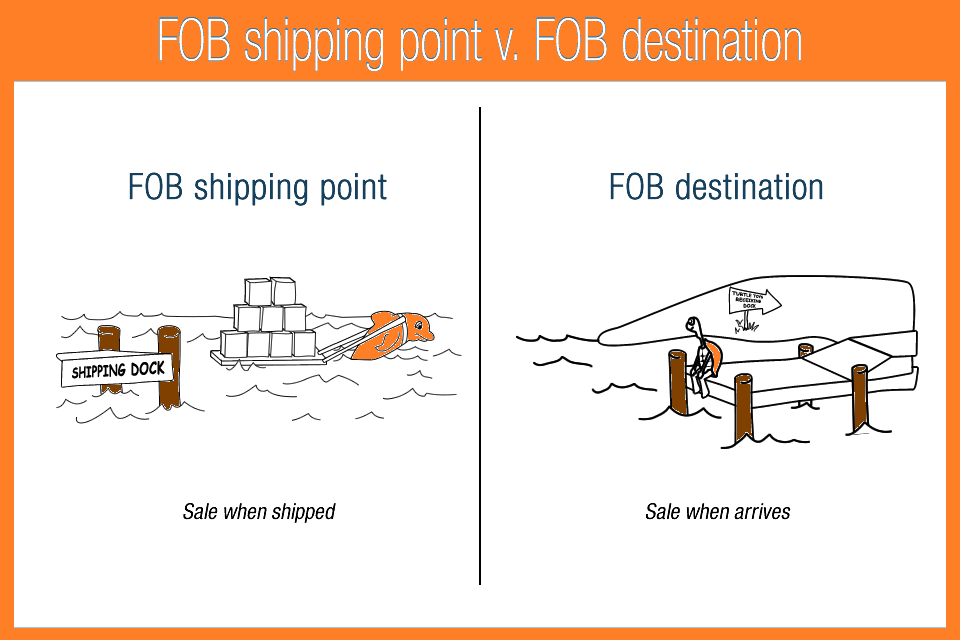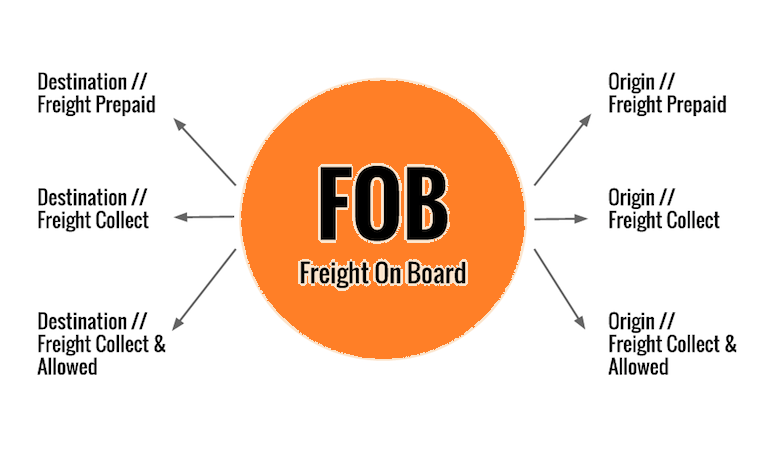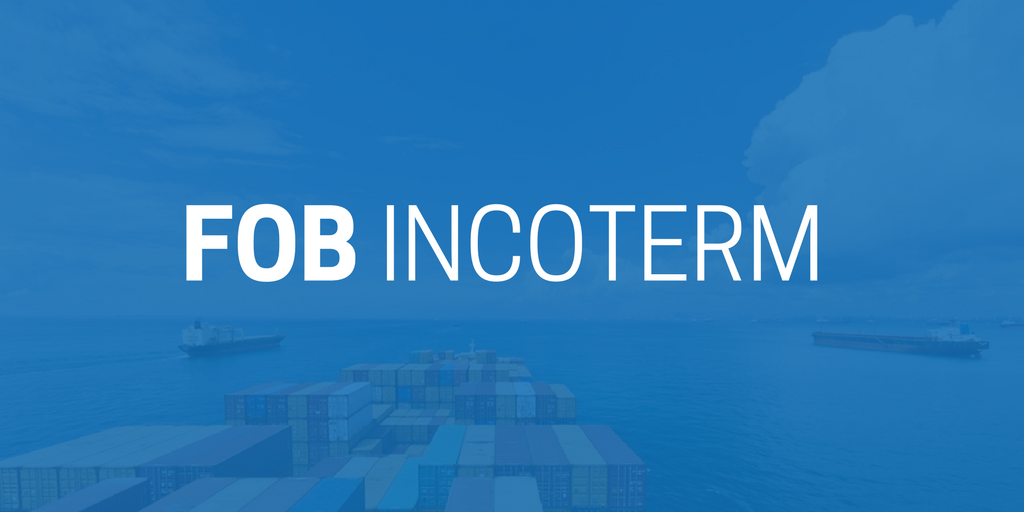There is nothing “free” about Free or Freight on Board (FOB), so it would be good to understand what this term really means. Which party is taking responsibility at which part of the move? Not understanding the liability involved if a product gets damaged or lost could result in a claim. Therefore, shippers need to understand this term, how it impacts their responsibilities and obligations when transporting goods and who is responsible for the product.
What Does Freight on Board Mean?
Freight on board, also known as free on board, refers to a set of International Commercial Terms, or Incoterms, that govern who owns and pays for a shipment when traveling overseas. The original definition was used exclusively for seafaring (ocean) transport, but the term FOB now can be used on any transit modes of shipment.
Although the word “free” is used in this term, it does not mean there is no shipping cost for the goods! It simply refers to which party has the obligation and liability for a shipment while in transit.

Image: FOB Origin vs. FOB Destination, Accounting Play
Who Pays the Freight Cost for FOB?
Receivers may be under the assumption FOB implies shippers bear the responsibility of liability and payment. However, the use of the term also includes additional stipulations that allow for the determination of the responsible payer for freight costs, ownership of freight while in transit and liability.
Generally, FOB destination puts ownership and liability on shippers while in transit. However, using “freight on board origin” puts these responsibilities on the receivers. This can get confusing, and here are some examples of stipulations that can be used in shipments:
- Freight prepaid
- Freight collect
- Freight collect and allowed
- Freight prepaid and charged back
These terms for defining FOB should be stated within the freight invoice, bill of lading or other official documentation.

Freight on Board Terms: What do these Mean?
- FOB Destination, freight prepaid – The shipper bears all responsibility for a shipment until it arrives at the destination. The shipper pays for the shipment, and the receiver is not responsible for any of the freight costs.
- FOB Destination, freight collect – Similar to freight prepaid, where the shipper bears the responsibility (obligations and liability) for a shipment, but the party receiving the shipment is responsible for paying for freight upon delivery. The receiver does not take ownership or liability for shipment until delivery, paying for freight once delivered.
- FOB Destination freight collect and allowed – This is where it gets fun. The shipper owns and shares responsibility for freight until delivery, but the receiver deducts the freight charges from their invoice. As a result, the invoice sent upfront includes the freight charges that the shipper originally paid.
- FOB Origin, Freight prepaid – Similar to “FOB destination, freight prepaid,” this means that the shipper pays the cost of shipping, but the receiver owns and assumes liability for the products at the point of origin.
- FOB Origin, Freight collect – Freight collect implies a receiver pays for the freight costs upon delivery. FOB Origin means the receiver owns the freight and assumes all obligations and liability for the shipment at the point of origin.
- FOB Origin, Freight prepaid and charged back – To mix things up, blending terms, this makes it really easy (for the shipper.) Instead of covering the costs of shipping, the shipper adds freight costs to the original invoice, but the receiver bears the costs since it is added directly to the invoice. Therefore, the receiver pays for shipping by paying a more expensive invoice. In this case, the receiver bears the freight costs, owns the product and assumes all liability at the point of origin.
- FOB Destination, Freight prepaid and charged back – Similar, the freight costs are added to the original invoice by the shipper, and the receiver bears all freight costs. In this case though, the shipper owns the freight and assumes all liability until delivery.
The use of FOB terms may seem complicated, but it is necessary to prevent language barriers and cultural differences in regards to interpretation. Without a uniform code defining these terms, problems and legal issues when reviewing and paying freight costs and taking ownership for shipments would arise from misunderstandings.
Understanding FOB can be confusing! More shippers are choosing to outsource the entire process to third party logistics providers (3PLs) to simplify the process.
Freight Allowed vs Freight Prepaid
Freight allowed (or collect) is when the buyer, or receiver of goods, pays the freight charges upon delivery of the goods to them. While freight prepaid, the shipper or seller pays all of the shipping costs up until the cargo arrives to the buyer.
Freight Forwarding Services
By working with the experts at BOA Logistics, shippers and receivers alike can rest assured, the process will be handled according to law and within all legal requirements. FOB terms stating the ownership and liability may play into the payment of duties, taxes and tariffs when crossing international borders. Shippers and receivers must not assume that someone else will always take on the liability and costs for shipments. Contact Boa Logistics for all of your freight forwarding and drayage services.


